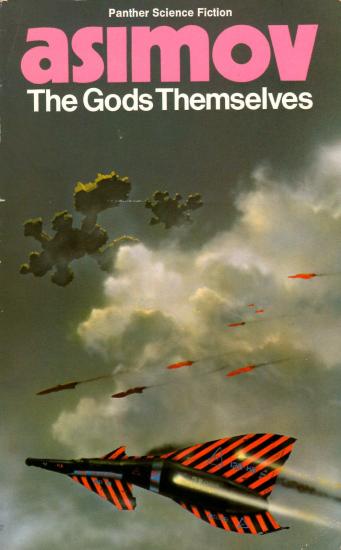
Rating: Not rated
Tags: Hugo Award, Nebula Award, Science Fiction, SF Masterworks, Lang:en
Summary
For 14 years of a career stretching from 1939 to his death
in 1992, Isaac Asimov wrote little SF and instead produced
popular non-fiction in enormous quantities.
The Gods Themselves (1972) was his "comeback" SF
novel, welcomed by both Hugo and Nebula awards. It opens in the world of Big Science that Asimov knew
well, full of in-fighting and the race to publish first. The
Inter-Universe Electron Pump sucks unlimited energy from
nothing, making all power stations obsolete and bringing a
new golden age. No one--especially not the scientist who got
the credit--wants to listen to the doomsayer Lamont who
calculates that the pump's side effects may detonate the Sun.
Worse, there's no kudos for him: "And no one on Earth will
live to know I was right". Part two moves to the dying parallel universe whose
hyper-intelligent aliens actually invented the pump and don't
care what happens to our Sun. Asimov cleverly focuses on
three immature aliens whose intelligence is less daunting and
who slowly learn - with very different personal reactions -
about their race's weird analogue of sex, about the pump's
moral implications, and eventually about the unexpected
meaning of maturity. These are the most original, engaging
aliens Asimov ever created. Part three is set in a carefully worked-out Moon colony
and grapples with the "para-physics" of inter-universe
loopholes. Can a politically acceptable replacement for the
pump be developed? Solid, workmanlike SF with far more talk
than action: one of Asimov's rare standalone novels. 1973 Hugo Award
1973 Nebula Award
SF Masterworks #121